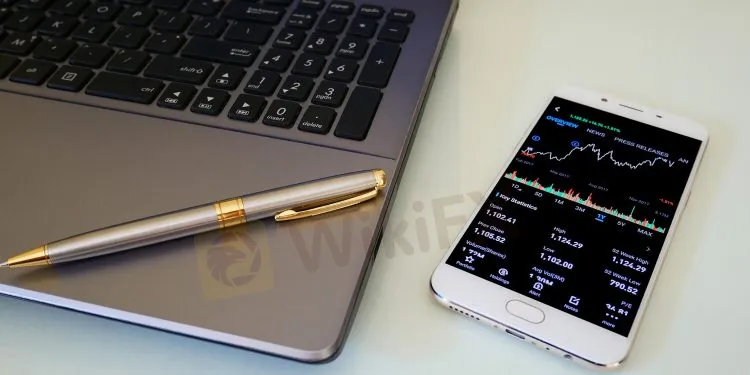简体中文
繁體中文
English
Pусский
日本語
ภาษาไทย
Tiếng Việt
Bahasa Indonesia
Español
हिन्दी
Filippiiniläinen
Français
Deutsch
Português
Türkçe
한국어
العربية
Why is It Important to Know The Right Brokerage Fee?
Abstract:A broker and a brokerage charge are probably not unfamiliar terms to traders and investors. However, you should not only study what they are, but also what they do (and how much you should pay).

A broker is a person or an organisation who assists you in completing your transaction. A brokerage fee is the money that compensates the service automatically.
The most common type of brokers are stockbrokers. That said, there are also other types of brokers in real estate or property, mortgage brokers, and in business, mostly B2B.
Brokers mostly charge you money in two varieties of payment. Respectively, they are percentage-based and flat rates. Depending on the brokers, the amount varies.
While brokers mostly handle the execution of transactions, they also sometimes charge for other services too such as regular reports. This, in addition, underlines the importance of knowing the right brokerage fees as people oftentimes pay brokers inappropriately in contrast to the services.
The Right Brokerage Fee
The right brokerage fee does not directly translate to the exact amount of percentage you have to pay. Instead, the right one means that you ensure that your brokers charge you the right amount according to the services they provide.
For starter, you can inspect the types of brokers you are dealing with. Mainly, there exists three types of brokers who offer different services at different prices.
Firstly, if you are using a full-time service broker, you can expect to receive services such as transaction assistance, research reports, tax consultation, and so forth. Per clients managed asset, the fee mainly ranges around 1% up to 2%.
Secondly, the downgrade version of a full-time broker is a discount broker. Unlike the preceding, discount brokers generally handle transactions only. Their commission is also lower and mostly flat.
The last-but-not-least type is the online broker which handles transactions online. Unlike the previous two, the fee for this broker depends on the broker itself. As they are a lot cheaper, their services are also a lot limited.

Disclaimer:
The views in this article only represent the author's personal views, and do not constitute investment advice on this platform. This platform does not guarantee the accuracy, completeness and timeliness of the information in the article, and will not be liable for any loss caused by the use of or reliance on the information in the article.
Read more

The Ultimate Guide to Automated Forex Trading in 2025
Modern markets are revolutionized by automated trading systems, which now execute 70-85% of all transactions. These advanced automated trading software solutions, commonly called trading robots or Expert Advisors (EAs), leverage algorithmic precision for automatic trading across forex, stocks, and commodities 24/7. By removing emotional interference and executing trades in microseconds, auto forex trading platforms create fair opportunities for all market participants. For those new to automated trading for beginners, these systems provide disciplined, backtested strategies while significantly reducing manual effort.

Will natural disasters have an impact on the forex market?
The forex market is known for its rapid responses to global events, but the influence of natural disasters, such as earthquakes and typhoons, can be less straightforward. While headlines may scream about catastrophic damage and economic disruption, the long-term effects on currency values often depend on a blend of immediate shock and underlying economic fundamentals.

Philippines Deports 29 Indonesians Linked to Online Scam Syndicate in Manila
Online scam groups in the Philippines trick Filipinos into gambling and love scams, from Manila to Bacolod, causing trafficking and pain as police fight back.

Why does your mood hinder you from getting the maximum return from an investment?
Investment decisions are rarely made in a vacuum. Aside from the objective data and market trends, our emotions—and our overall mood—play a crucial role in shaping our financial outcomes. Whether you’re feeling overconfident after a win or anxious after a loss, these emotional states can skew your decision-making process, ultimately affecting your investment returns.
WikiFX Broker
Latest News
How Crypto Trading Transforms FX and CFD Brokerage Industry
FCA Warns Against 10 Unlicensed or Clone Firms
CySEC Warns Against 14 Unlicensed Investment Websites
Top Currency Pairs to Watch for Profit This Week - March 31, 2025
Will natural disasters have an impact on the forex market?
Philippines Deports 29 Indonesians Linked to Online Scam Syndicate in Manila
Exposed: Deceptive World of Fake Trading Gurus – Don’t Get Fooled!
AI-Powered Strategies to Improve Profits in Forex Trading
Stock Market Trading Volume Drops by 97.58 Billion Naira This Month
Why does your mood hinder you from getting the maximum return from an investment?
Currency Calculator







